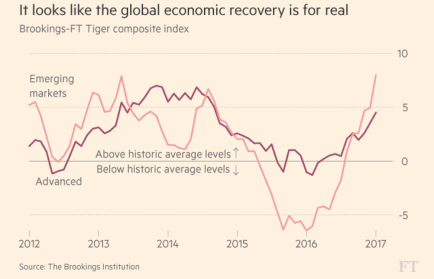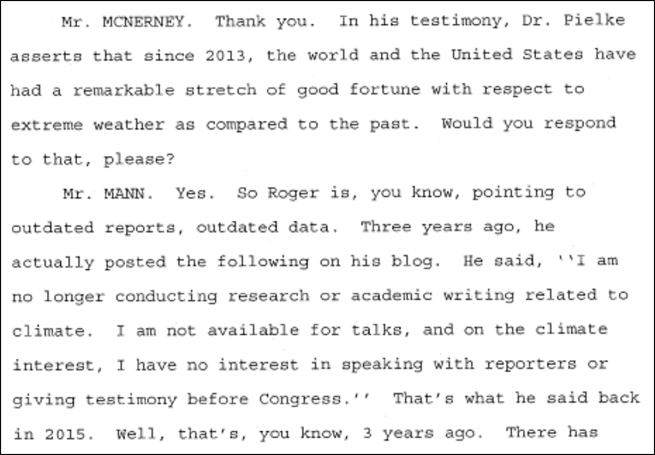 I’ve decided to publish an occasional newsletter on climate and energy issues. It is not part of my day-to-day research or writing, which is focused on sports governance and science policy. I’ve written a fair bit on the topics of climate and energy, including two books, and I may not have anything new or interesting to say. That’s OK, it’s just a blog.
I’ve decided to publish an occasional newsletter on climate and energy issues. It is not part of my day-to-day research or writing, which is focused on sports governance and science policy. I’ve written a fair bit on the topics of climate and energy, including two books, and I may not have anything new or interesting to say. That’s OK, it’s just a blog.
A few things to say up front:
- If you don’t like what I write or don’t like me, then don’t read it. It’s OK, I don’t mind.
- If you do appreciate the perspective, consider the tip jar to your right.
- If you’d like to engage, consider a comment, a Tweet or an email. I am happy to discuss or debate.
- If you choose to call me names or lie about me, oh so common in discussing climate, then you will be blocked or ignored.
- We’ll see how this goes. I expect to post about monthly.
Energy & emissions policies
- According to IEA global carbon dioxide emissions remained more or less level for the third year in a row. I have added in the red lines. A few thoughts follow.

- First, speculation that economic growth and CO2 emissions are “decoupling” is incorrect. They remain tightly linked.
- When CO2 emissions do not increase from year-to-year, that means that the rate of global economic growth is the same as the rate of decarbonization of the global economy (measured as CO2/GDP). The following figure shows growth rates in global GDP and CO2 from 2000-2016, also from IEA.

- To get a decent approximation of the rate of global decarbonization from the figure, just subtract the yellow line from the blue line. The fact that the difference between these two curves in recent years is the widest that it has been in 15+ years explains the recent slowdown in global emissions growth.
- Keep in mind there are two moving parts here, GDP and CO2 emissions (which are a function of carbon intensity of energy and energy intensity of the economy). Looking only at emissions is bound to deceive.
- There is emerging evidence that coal use in China (the 800 lb gorilla here) is increasing in 2017 after years of slowing down.
- There is also evidence that global GDP is increasing, as shown below from the Brookings-FT Tiger (Tracking Indexes for the Global Economic Recovery).

- In the first IEA figure above, the first red line I included highlights a similar global emissions slowdown in the early 1990s, followed by a rapid and sustained expansion. over the next several decades. GDP, energy intensity and carbon intensity rule all here – emissions are just a consequence.
- What rate of decarbonization is needed to hit stabilization targets of the sort envisioned by the Paris Climate treaty? More than double what has been seen in recent years, as explained by PwC (6.5% per year, every year til 2100 or so):

- For more on this topic follow the excellent @peters_glen (read this) and @bradplumer (read this).
- Good recent academic stuff: Jenkins and Thernstrom (PDF), Heard et al. (PDF).
- Bottom line: Keep your eye on the ball – its decarbonization (of the global economy) that is the metric to watch, not simply emissions.
- The fate of the Paris Agreement
- The Trump Administration is apparently wrangling over whether the US stays in or leaves the Paris Agreement.
- Many businesses, including ExxonMobil, support the agreement because, at least for them, it enables the expansion of the use of fossil fuels. Yes, you read that right.
- That fact alone doesn’t men that Paris is good or bad, but it should tell you that its fate under President Trump the agreement won’t determine the course of future decarbonization.
- I can just as easily spin a story where Trump pulling out is better for action than staying in – for instance if it mobilizes a search for new and better policy approaches. But it is a powerful symbol in an issue that is comprised mostly of symbolic actions these days.
- Bottom line: In the US the climate issue is mainly a means to other political ends. This is true for both political parties. It is also true for the leading voices among the climate science community.
- Lost in all the partisan politics is – the climate issue. I don’t see this changing much. However, if progrss is to be made in the US, it will be bipartisan, widely supported and with the anger and poison removed. Ya, good luck.
- Disasters
- @stevedarden posted up a link to my recent Tweet storm on the latest data on trends in disasters and climate change. Have a look at that for a comprehensive update of IPCC conclusions and most recent data.
- It has become a common ploy in public debates to completely ignore the work of the IPCC and government observations of actual extremes. For instance, here is (such as it is) the “debate” between me an Michael Mann at the recent House Science Committee hearing on this subject:


- Outdated reports? Outdated data? Bring it.
- Interestingly in all of the sound and fury following the recent Congressional hearing, I did not see one substantive response to anything I presented in my testimony – on scientific integrity or disasters. Crickets.
- Apparently if you cite the IPCC itself you may be … a climate denier. It’s nuts, I know, but the incantation of “97% … 97% … 97%” has apparently eliminated need for the IPCC or understanding what it actually says.
- Bottom line: I’ll debate anyone anywhere on this topic. No one will. I guarantee that.
- Scientific integrity in climate science
- Most climate scientists that I know want to do good work, love their jobs and just want to stay away from the politics and the food fights. Good for them. They are decent (and smart) folks doing important work.
- But the field has been hijacked by a few loud and powerful voices. Its not good for science or science in policy. I see this every single day, even if I try to look away.
- Side note: (because it crossed my desk), faster than you can say “Willie Soon,” here is a new peer-reviewed paper with its core grey-literature analysis paid for, at least in part, by billionaire Tom Steyer. The paper offers a masterclass in getting around COI and funding disclosures. No one cares, I know. Here are some details.
- Did you hear about the latest on “the pause”? … Seriously? WTF cares? it is utterly irrelevant to policy. Believe whatever you’d like. People loveto wage war over atmospheric temperature trends. It. Doesn’t. Matter.
- Poisoning the well. I’ve seen a lot the past few weeks, even for me. For instance, following last month’s House Science Committee a member of the US House of Representatives took to Twitter to label me (falsely) a “climate skeptic.” A Harvard professor analogized me to the Nazis. Michael Mann continued nonstop to label me a denier and suggest ominously and repeatedly that I am funded by fossil fuel interests. And several journalists acknowledged to me that they had mischaracterized me but then refused to correct. Another told me that I shouldn’t have come back (to discuss climate). It’s OK, that’s all par for the course. I’ve got tenure.
- More poison. Activist climate scientists and their allies, such as Joe Romm at CAP, are trying to get @BretStephensNYT fired from his new gig at the NYT, using the same playbook they used to get me booted at 538. I don’t think it’ll work as well in this case – Stephens is a much bigger fish and the editorial folks at the NYT are far better equipped to handle this sort of thing.
- But it should trouble everyone in the scientific community that the primary response of its leading voices when they encounter a voice they don’t like is to try to get that person fired from their job. That it doesn’t trouble anyone very much says something.
- By the way, if you haven’t read Stephens’ Daniel Pearl Memorial Lecture, do that now. It’s got nothing to do with climate, but it is very good.
- My entire testimony before House Science was about scientific integrity in climate science and how to secure it (here in PDF). The lessons here are not unique to climate and will be familiar to anyone familiar with The Honest Broker. The testimony was ignored by members of congress (both sides), journalists who reported on the hearing and of course, scientists.
- Finally, @oren_cass has a hard-hitting but ultimately very fair piece on the state of the climate debate at the National Review, Who’s the Denier Now?
- Until next time!

Reblogged this on Utopia – you are standing in it!.
LikeLike
Happy to see you back.
MIKE
LikeLiked by 1 person
NR is paywalled. Too bad
LikeLike
Thanks for your efforts.Much appreciated.
One practical point on clarity.
Your graphics are too small to see clearly- and Im looking at them on a 12.5 inch laptop screen. And they cannot be expanded.
LikeLike
I look forward to reading your monthly articles! Here is one bit of trivia about this one.
“global GDP is increasing”
True, but then it almost always does. Perhaps you mean “real global GDP growth is accelerating”.
Negative real GDP is rare; 2009 was the only negative year since 1960.
Here is global GDP data, from the World Bank: http://data.worldbank.org/indicator/NY.GDP.MKTP.KD.ZG
I don’t know what the “Brookings FT Tracking Indexes for the Global Economic Recovery” is. I doubt many people do. It ain’t GDP. Details here: https://www.brookings.edu/research/october-2016-update-to-tiger-tracking-indexes-for-the-global-economic-recovery/
LikeLike
That was a quite enjoyable read. I especially liked the pic at the top of the page, where the few remaining New Yorkers are floating a half-mile above the flooded city streets below due to the melting of both polar ice caps. Al Gore was right!
It was also nice to see this article linked to on the Real Clear Energy site. Hopefully, that’ll drive some traffic its way.
If anyone would like to watch the ‘Climate Hustle’ documentary that so unnerved the climate delegates in Paris, it’s here:
http://www.docmercury.com/rainy/climate-hustled
LikeLike
Great to see you back, and as a blog, not as heavy on the science, which I struggled with, but high on information.
LikeLike
Interesting post.
A clarification, where you say “Apparently if you cite the IPCC itself you may be … a climate denier. It’s nuts, I know, but the incantation of “97% … 97% … 97%” has apparently eliminated need for the IPCC or understanding what it actually says.”
That is a reference and link to my post (thanks for the link) but not correctly characterized.
The problem is, in a nutshell, that the IPCC report, while a great thing for many reasons, is when it comes out anywhere from months to about a year behind the absolute cutting edge lit.
In some cases that does not matter, but in areas where there is current very active research it can matter a lot. As I recall, the IPCC solidified (for the time) its position on sea level rise right in the middle of a bunch of research coming out suggesting a shift in how we think about sea level rise, and that never really got picked up in the process.
Then, the IPCC gets a year older very years, so some item or conclusion in that report becomes potentially even more out of date every year.
And, yes, folks often say “… the IPCC says this therefore my argument is correct” even when all the literature since that report says the argument is less correct, ore simply out of date.
So, the IPCC lends a level of authority to a statement that becomes potentially more and more bogus as time passes, until the next report comes out.
This is why I’ve argued for a second project, a sort of dynamic IPCC-Now wiki or something along those lines, which may be less authoritative and less considered or deliberative, but more current.
LikeLiked by 1 person
RPJr did not say that sea levels weren’t rising. Your cherry-picked example is meaningless. RPJr wrote about extreme weather. Everything he said was true but your side got him sacked because he contradicted your political united front where everyone has to stress potential catastrophe and all ‘the science’ must favour alarmism.
LikeLike
Archives
April 2017
March 2015
February 2015
January 2015
December 2014
Roger good luck and good wishes that the future archive extends beyond 4 months.
LikeLike
Roger:
Very happy to see that your will begin blogging in this area again.
I watched your testimony and thought you did a very good job.
As usual, Dr. Mann’s attacks were totally off base and very unfair.
Looking forward to reading your future posts.
LikeLiked by 1 person
I am happy to see your blog here, and I am looking forward for the next issue!
LikeLike
If it is any consolation, Peak Oil had the same consensus among the mainstream (AAAS bunch), and the diatribes against resource expansionists from Julian Simon to Michael Lynch were about as bad as you and Judith Curry have received. And Peak Oil is quite dead–it is now Peak Demand.
LikeLiked by 1 person
Reblogged this on 4timesayear's Blog.
LikeLike
Typo in “if progrss is to be made in the US” — missing “e” in “progrss”. Please delete this comment after fixing spelling.
LikeLike
One more typo in “People loveto” — missing space in “loveto”. Please delete this comment after fix.
LikeLike
Roger, Here in Australia we are reliant on quality, primary material from USA on global warming consequences. If it has a hearing before Congress on it, so much the better for our pollies to accept. So, thank you for your efforts, a job well done and probably another step closer to climate rational here. Geoff.
LikeLike
I’m glad to see you back in the blog format, Dr. Pielke. This was excellent. Thank you.
Your Congressional testimony was superb, again, as usual. I notice that your time, as well as that of Drs. Curry and Spencer, was somewhat limited by way of the 100% Democratic focus on Dr. Mann. If i recall correctly, not one of them asked a question of anyone but Dr. Mann (what’s up with that?), and so your good sense had much less of a platform than I think it deserves.
I would have enjoyed seeing at least one of the Congressional questioners point out the supreme irony of Dr. Mann making a weak refutation of one of you points by accusing you of some sort of bullying, apparently, in that in some e-mail you sent during the 538 period, he claimed you threatened law suits over possible libelous statements. This is quite rich, as he is an actual active plaintiff in multiple active SLAPP style lawsuits in the US and Canada. Mark Steyn, The National Review, Rich Lowry, Dr. Tim Ball have all been actually sued by Dr. Mann, and about half the world has been threatened by him. But Mann was in 100% refusal-to-speak-mode about that. I know they cannot be too rude to one of their invited experts, but a big part of climate science analysis is about logic, consistency, integrity and brutal honesty, and I’d just like someone to point out Dr. Mann’s hypocrisy and sophistry to his face.
I’d enjoy a future post on your thoughts about the anti-Trump march for “science” this past weekend, or on the recent video by Neil deGrasse Tyson in which he posits science as the platform for ultimate “shut up you political dissenters” control, the latter being even more shameful than the former, IMO.
LikeLike
Excellent content. Look forward to more of your posts.
LikeLike
Good to hear your voice again. Thanks for not allowing the slime attacks from the likes of Mann silence you permanently. I look forward to reading more on the future.
LikeLike
Good to see that you are back. Nice blog entry, keep them coming! Best wishes.
LikeLike
… are trying to get @BretStephensNYT fired from his new gig at the NYT,
Yeah, well his posts on the climate debate were pretty good, and I wondered how long he would last. Since then, except when he attacks Trumpy’s character, he’s just peddling the same pseudo-intellectual mush as David Brooks. I wonder…is there an intelligent conservative out there? Just askin’
And yeah…does anyone actually READ the IPCC reports? 🤓😂
LikeLike